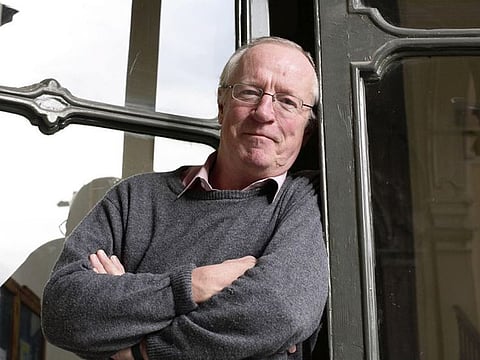Veteran journalist Robert Fisk dies aged 74
A specialist on Middle East, he covered all major events in region for four decades

Veteran foreign correspondent Robert Fisk has died of a suspected stroke. He was 74 and had recently become unwell at his Dublin home on Friday, following which he was admitted to St Vincent’s hospital.
Fisk was one of the most highly regarded and controversial British foreign correspondents of the modern era and was described by the New York Times in 2005 as “probably the most famous foreign correspondent in Britain”, the BBC reported.
He won numerous awards for his reporting on the Middle East, starting from the 1970s, with Beirut being his home base for decades. He is was sharply critical of the US and Israeli policies in the Middle East.
The New York Times, in 2005, described him as “probably the most famous foreign correspondent in Britain”.
Fisk came to prominence for his coverage of the Lebanese Civil War, the first Gulf War, based in Baghdad, the events of 9/11, and the US-led war wars in Afghanistan and Iraq. Fisk also interviewed Osama Bin Laden on three occasions.
He also covered Israeli invasions of Lebanon, the Algerian civil war, Saddam Hussein’s invasion of Kuwait and the 2011 Arab revolutions. He worked in the Balkans during the conflict there and more recently covered the conflict in Syria.
Born in Maidstone, Kent in 1946, he later took Irish citizenship. Irish President Michael D Higgins has expressed his “great sadness” about Fisk’s death on Sunday.
Veteran Lebanese Druze politician Walid Joumblatt, who was a warlord during the civil war, said on Twitter:
“I will miss you terribly my friend Robert .You were a remarkable person with unbelievable courage and a unique reporter. We met during crucial moments of the Lebanese Civil War and you predicted the fate of the Lebanese like the Arabs today ...” he said in a post on Twitter Monday.
Irish President Michael D Higgins has expressed his “great sadness” about Fisk’s death on Sunday. “With his passing the world of journalism and informed commentary on the Middle East has lost one of its finest commentators,” he said in a statement. “I have had the privilege of knowing Robert Fisk since the 1990s, and of meeting him in some of the countries of which he wrote with such great understanding. I met him in Iraq, and last year I had my last meeting with him in Beirut, during my official visit to Lebanon.
“I knew that his taking of Irish citizenship meant a great deal to him. And his influence on young practitioners in journalism and political writing was attested by the huge audiences which attended the occasions on which he spoke in Ireland.”







